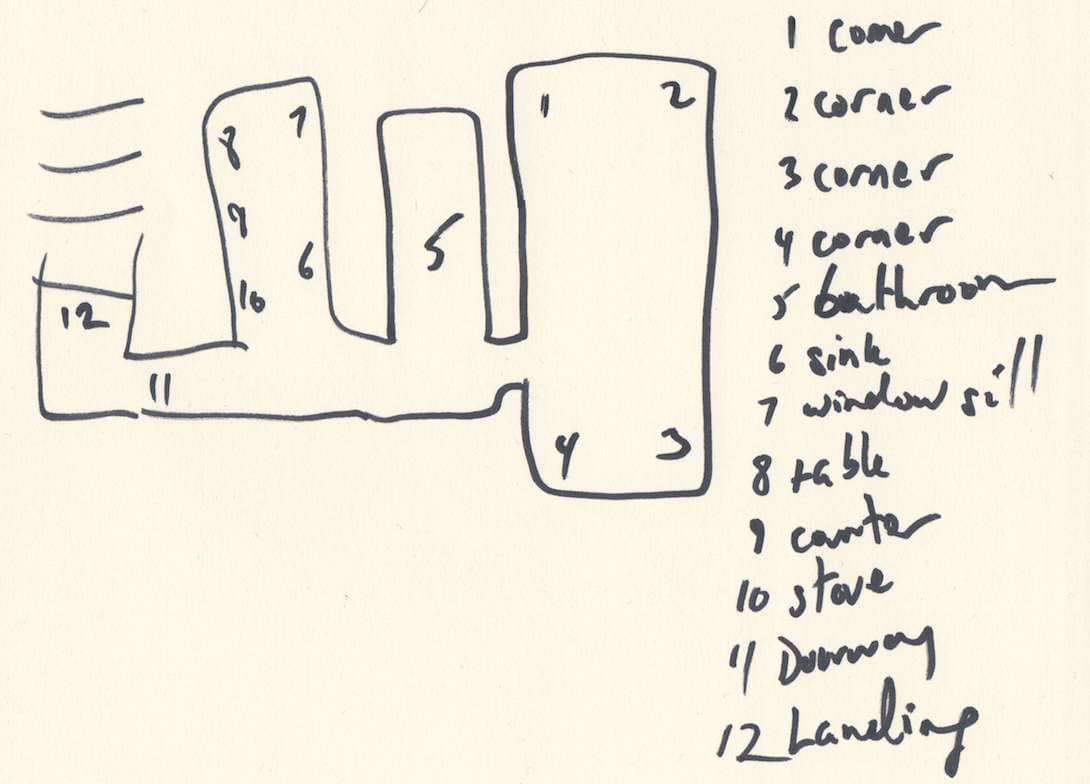 The irony of working with Memory Palaces to memorize information using memory techniques is this:
The irony of working with Memory Palaces to memorize information using memory techniques is this:
Focusing on the small stuff can distract you from the big stuff.
See, learning just about anything is filled with all kinds of little details.
There’s so much to learn that it’s easy to overlook… eating.
That happened to me a lot in Germany, where most stores (including many grocery stores) are closed on Sundays.
And there I was many years ago at the Magnetic Memory Method Headquarters. It was 7 pm and I was starving.
Well, I had a few things I could have eaten, but like I said: the irony is that when we’re using memory techniques, we sometimes get so focused, we “forget” to pay more to lifestyle issues like the Sunday shopping schedule…
Anyhow, I’ll talk about memorizing to-do lists some other time. Mnemonist and memory expert Derren Brown has had interesting things to say about memorizing such lists, after all. In fact, he says that he’s much more likely to remember what he needs to do when he has placed those items in a to-do list.
In any case, being painfully aware of this absentminded error as I type, this episode in my life reminds of something I wanted to tell you about.
A Powerful Exercise For Using Memory Techniques In Grocery Stores
Here’s a memory exercise that I came up with when I was shopping in the grocery while living in Germany. To this day, it’s one of my favorite brain games. (The rare time I do any shopping anymore. Normally, I wait outside while my wife shops so I can focus on reading.)
This memory exercise has two parts:
First, memorize the items as you place them in the cart. Since I was living in a German-speaking country, this was a major part of what helped me achieve basic bilingualism.
And memorizing while you’re out and about gives you a nice break from books like the Teach Yourself series for vocabulary. (Though working with those books in particular is a very good thing to do as a language learner.)
The second part of the exercise is to memorize the price of each item. For this, I suggest you use the Major Method. For the names of the foods, I suggest that you use the standard MMM technique for memorizing vocabulary.
Without looking at the cart, or looking at it as little as possible, keep moving throughout the store at your normal pace. Then, as you remove items from the shopping cart, use some mental math to calculate the prices based on what you memorized.
Obviously, this is an exercise best reserved for casual shopping when there isn’t a fixed shopping list already in play.
How to Use a Grocery Store as a Memory Palace
If you’re new to using Memory Palaces, it’s actually very simple.
First, create a simple drawing based on what you remember of the layout. Like this:
Although the illustration above is based on an apartment, the principle remains the same.
It’s literally based on what I remember of the layout: That’s what makes it a true Memory Palace. If you make stuff up that you have to memorize, that’s a Memorized Palace, and something different than what I teach in the Magnetic Memory Method Masterclass.
And don’t worry about “using up” a Memory Palace that you’d rather save for “more important material.” I don’t believe that’s possible, and even if it were, it’s really easy to find more Memory Palaces.
The second step is to encode the words and the numbers you want to memorize as you move throughout the grocery store. How?
Use mnemonic devices like mnemonic imagery, the pegword method and a 00-99 PAO.
Third, review all of the words (and in this case, prices) as soon as you get home. If you want to memorize the information more permanently, use more Recall Rehearsal. Memory expert Dominic O’Brien calls a similar process the Rule of Five, but I’m confident that you’ll find my Recall Rehearsal is more robust because it’s based more closely on the science of active recall, and the many stages of memory used in spaced repetition.
Give this simple memory exercise a try. It’s almost certainly going to help you enjoy sharper results than using softwares like Cogmed, which haven’t proven great for brain exercise, let alone meaningful memory improvement.
Also, mentally mapping out a grocery is a great way to help yourself generally stop losing track of things. Sure, grocery stores change their layouts all the time, but the point here is that you are well-practiced in linking locations with mental images.
And why spend time staring at an app when you can use the world to practice your memory techniques? That’s what I call tapping into how your memory really works.
Related Posts
- Magnetic Memorization and Systema
The Russian Martial Art Systema can help you use Memory Palaces to memorize foreign language…
- Memory Improvement Techniques For Kids
You're never too young to get started with memory techniques
- Memory Improvement Techniques For Kids
You're never too young to get started with memory techniques




